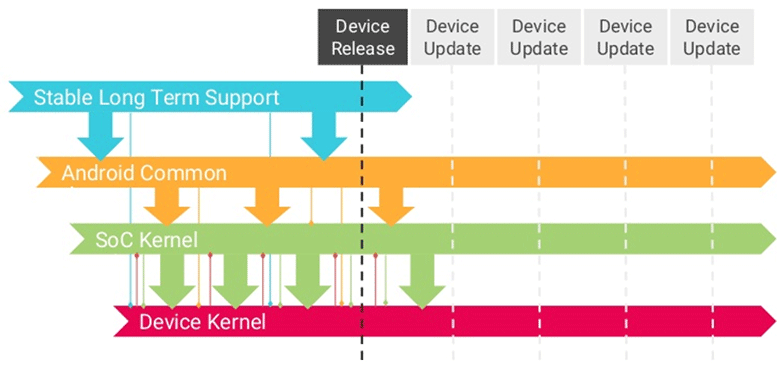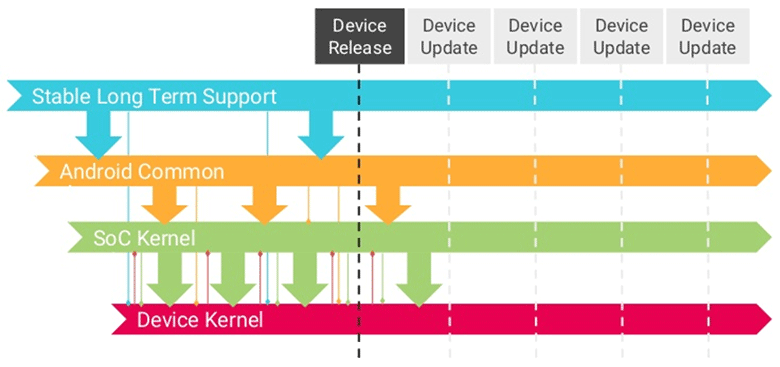The lifespan of Linux kernel LTS versions increased to six years.

The two-year life cycle of versions of the Linux LTS kernel does not allow to issue actual updates for Android devices, that is, it does not cover the device life cycle
From now on, the period of support for Linux versions with long-term support (LTS) has been increased from two to six years. The news was announced by Ilyan Malchev from Google, speaking at the Linaro Connect conference. The announcement was made with the permission of one of the main developers of the kernel and the maintainer of the stable branch Greg Kroah-Hartman (Greg Kroah-Hartman), writes The Register .
Google is committed to ensuring that every Android device must be updated to new versions of Android at least four times during its life cycle. But now the opposite situation is observed - well, if the smartphone is updated to the new version of Android at least once.
Malchev himself is working with Google on the Treble project - a more convenient system for updating smartphones with newer versions of Android, and the short life cycle of versions of the Linux LTS kernel hinders developers (see the slide from the presentation above). It often happens that the smartphone for Android ceases to be updated and remains forever on the old version of the OS.
')
Malchev said that device manufacturers now have to choose which version of the Linux kernel they will work with, but they also understand that the LTS versions have only a year of support, and sometimes less. Thus, the two-year LTS support period does not cover the life cycle of the device.

The new six-year life cycle brings support for versions of the Linux LTS kernel in line with the release of updates for Android devices
A six-year LTS support period should solve the problem with Android updates. In addition, it will allow to release really stable releases, after fixing all the bugs, which Linus Torvalds wrote on October 1 in the mailing list for developers . He talked about some problems with version 4.14 LTS, which was not as popular as version 4.9. For example, in 4.14 rc3, “serious basic problems” are corrected, which Linus would not like to see at this stage. Three changes in rc3 have a greater degree of importance.
With the current eight-week release cycle of the newer version of the Linux kernel, the LTS version will be released every nine months. The new six-year support policy extends to LTS since version 4.4. This is the core of Google that asks device developers to install on Android O devices.
Source: https://habr.com/ru/post/370871/
All Articles